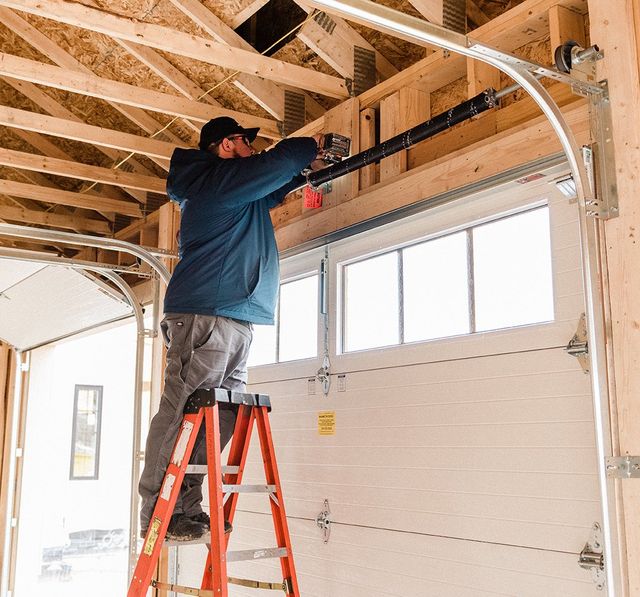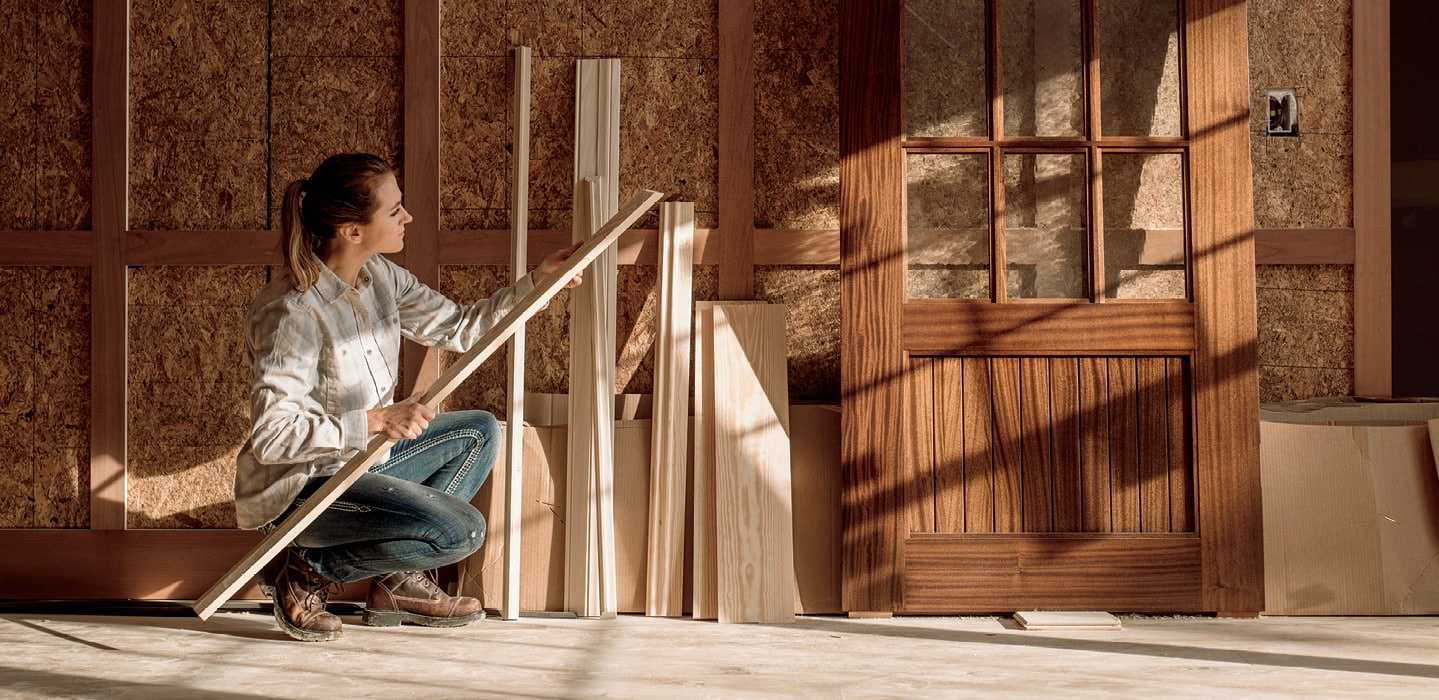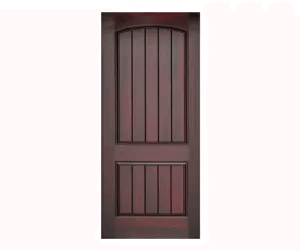Professional suppliers and how they enhance your renovation goals
Every little thing You Required to Learn About Choosing the Perfect Door for Any Space
Choosing the best door for any type of space needs cautious consideration of different aspects. Different door types offer unique purposes, while products can influence both toughness and aesthetics. Measurements play a vital function in functionality. Security attributes can not be neglected. As one navigates the complexities of design and upkeep, the options can really feel overwhelming. Comprehending these elements is crucial for making a notified choice that stabilizes practicality with design. What essential variables will become most considerable?
Understanding Various Door Kinds
When selecting a door, it is important to understand the various kinds available, as each serves a distinctive function and aesthetic. One of the most typical kinds include pivoted, gliding, bi-fold, and pocket doors. Hinged doors, which swing open on a collection of hinges, are ideal and versatile for both interior and outside usage. Moving doors, often made use of for outdoor patios, conserve space and use a smooth shift between inside and outdoors. Bi-fold doors contain numerous panels that fold up away, making them optimal for vast openings and making the most of all-natural light. Pocket doors glide into the wall surface, providing a covert choice that is excellent for small spaces. Each door type not only adds to functionality however additionally boosts the overall design of a space, enabling house owners to select a design that enhances their personal taste and architectural vision. Comprehending these choices is essential for making an educated choice.
Exploring Materials and Their Benefits
Choosing the ideal door product can markedly impact both functionality and aesthetic appeals. Different materials provide distinctive benefits, making it important to review the specific needs of a space. Timber doors, for circumstances, are valued for their natural charm and insulation residential properties. They can be personalized to fit any type of design style, but call for normal upkeep to stop warping and damage.
Steel doors, specifically steel, offer enhanced safety and security and sturdiness, making them optimal for exterior applications. They are immune to weather and insects, but might do not have the warmth of wood. Fiberglass doors combine the very best of both globes, offering toughness with the look of timber, while likewise being energy-efficient.
Glass doors can produce a sense of openness and allow all-natural light to stream into a room. They might require added privacy remedies. Understanding these products enables notified decisions that line up with both functional needs and aesthetic preferences.

Dimension Matters: Choosing the Right Capacities
When picking a door, recognizing the suitable measurements is essential. Basic door dimensions provide a beneficial beginning factor, but precisely measuring one's area assures a correct fit (front door replacement). Additionally, considerations for customized dimensions may develop, specifically in distinct architectural settings
Conventional Door Sizes
The measurements of doors play a vital duty in both capability and aesthetics within a space. Common door sizes vary based upon the kind of door and its desired usage. The most typical interior door dimensions are 24, 28, 30, 32, and 36 inches in width, with elevations typically at 80 inches. Exterior doors have a tendency to be bigger, typically gauging 36 inches, providing less complicated accessibility. In addition, some common dimensions may accommodate details demands, such as double doors or pocket doors, which can enhance layout flexibility. It is necessary to consider these typical dimensions when choosing a door, as they assure compatibility with existing frames and provide a well balanced visual influence, inevitably adding to the general style of the space.


Measuring Your Area
Accurate measurements are essential for making sure that a new door fits flawlessly within an assigned opening. To start, one should measure the width and elevation of the door structure, keeping in mind of any kind of irregularities in the structure. It is advisable to measure at numerous points to represent variations, specifically in older homes. The basic door size is typically 30, 32, or 36 inches, while the elevation typically gauges 80 inches; however, it is essential to verify these dimensions against the certain opening. In addition, consider the swing direction of the door and any type of prospective obstructions in the surrounding location. Correct dimensions enable a smoother installment procedure and enhance the overall functionality of the door within the space.
Custom Capacities Considerations
Custom-made measurements play an essential role in guaranteeing that a door not just fits flawlessly yet additionally complements the overall design of a space. doors supplier. When selecting a door, it is vital to take into account the distinct measurements of the door framework, in addition to any type of architectural features nearby. Custom-sized doors allow for a seamless integration right into different styles, whether conventional, contemporary, or rustic. In addition, they can improve performance, providing ample clearance and access. Home owners must also consider the door's thickness and material, as these elements can affect insulation and longevity. Inevitably, investing in custom measurements results in a customized option that elevates the aesthetic charm and functionality of any room, creating a cohesive atmosphere
Enhancing Security Includes
While homeowners focus on aesthetic charm when selecting a door, improving safety and security functions continues to be an important consideration. An appropriate door not just complements the home's style yet likewise works as a first line of defense versus intrusions. The product plays a significant duty; solid wood or steel doors typically use superior stamina compared to hollow-core options.
Along with material, house owners need to take into consideration the door's securing mechanisms. Multi-point securing systems provide enhanced security by engaging at numerous factors along the frame, making break-in harder. Reinforced frameworks and strike plates can further bolster door safety and security.
In addition, the installation of smart locks provides benefit and sophisticated safety attributes, such as remote surveillance and keyless entry. House owners ought to likewise examine door thresholds and weather condition removing, as these can stop unapproved access and enhance energy effectiveness. Eventually, integrating robust security features warranties satisfaction without endangering the door's general capability.
Visual Considerations: Style and Design
A door's style and design considerably influence a home's total visual, as it works as both an entryway and a visual prime focus. Picking the appropriate door involves reviewing numerous style elements that mirror the homeowner's preference and the building style of the building. Contemporary homes might take advantage of sleek, minimalist doors including glass panels, while traditional designs may accept ornate wood styles with intricate makings.
Color and coating likewise play significant duties in boosting aesthetic charm; bold tones can make a statement, while muted tones often redirected here mix sympathetically with the surrounding environment. Furthermore, hardware option-- such as manages and hinges-- should enhance the door's design to produce a cohesive look.
Ultimately, a thoughtfully picked door not just enhances aesthetic charm but additionally sets the tone for the interior area, making it important to reflect on visual aspects throughout the selection procedure.
Upkeep and Toughness Aspects
When choosing a durability, door and maintenance are important considerations that affect its lasting performance. An introduction of product alternatives reveals varying levels of maintenance and strength, while practical maintenance pointers can extend the door's lifespan. Furthermore, examining climate resistance is vital for making certain that the door endures ecological components effectively.
Material Contrast Review
Choosing the ideal door product is essential for property owners looking for longevity and low maintenance. Different products provide unique benefits. Steel doors, for example, offer excellent resistance to deterioration, making them optimal for high-traffic areas. Fiberglass doors are an additional solid alternative; they stand up to moisture and are less check my reference vulnerable to damages and scratches. Timber doors, while cosmetically pleasing, require more maintenance because of susceptibility to bending and decay. Vinyl doors provide a budget-friendly service with marginal upkeep, though they might not offer the same longevity as steel or fiberglass alternatives. Ultimately, the choice of material effects not only the door's life-span but additionally the quantity of upkeep needed, affecting general homeowner satisfaction.
Maintenance Tips for Long Life
Normal upkeep plays a vital function in prolonging the lifespan of doors, no matter the product picked. Property owners must routinely evaluate doors for any kind of indications of damage, such as splits or warping. For wood doors, periodic sanding and refinishing can prevent damage and preserve visual appeal. Metal doors profit from a clean, rust-free surface area, which can be achieved with normal cleansing and the application of safety finishings. Locks and hinges need lubrication to assure smooth operation, minimizing wear and tear. Furthermore, making certain that door frames are appropriately lined up can stop undue anxiety on the door itself. By adhering to these maintenance methods, people can substantially boost the durability and performance of their doors, inevitably contributing to long-lasting value.
Weather Condition Resistance Factors To Consider
Although weather condition resistance is usually ignored, it is an important variable in the selection and maintenance of doors. Correct weather-resistant doors can greatly enhance a home's energy efficiency and safeguard against dampness, temperature level, and wind changes. Materials such as fiberglass and steel supply exceptional durability compared to wood, which may warp or rot in time. Furthermore, the top quality of seals and weather condition stripping plays a crucial function in avoiding drafts and water infiltration. Routine assessments and maintenance can further extend a door's life expectancy, guaranteeing it stays visually enticing and practical. Property owners need to focus on weather condition resistance to alleviate potential damage and decrease lasting repair work costs, ultimately adding to an extra lasting living atmosphere.
Regularly Asked Inquiries
Just how Do I Know if I Need a Custom-Sized Door?
To figure out if a custom-sized door is required, one should measure the existing door frame and analyze any kind of irregularities or distinct building features. page If conventional sizes do not fit, customized alternatives end up being necessary for appropriate setup.
What Are the Ideal Door Options for Soundproofing?
The best door options for soundproofing include solid wood doors, fiberglass doors with sound-dampening cores, and specifically made acoustic doors. These products effectively reduce noise transmission, enhancing privacy and comfort in various atmospheres.
Can I Mount a Door Myself, or Should I Hire an Expert?
If he possesses the required abilities and tools, he can install a door himself (entry door replacement). Hiring a specialist might ensure a higher quality setup, especially for complicated or hefty doors calling for specific dimensions and placement.
What Are the Typical Expenses Connected With Different Door Kinds?
Typical expenses for doors differ substantially; indoor doors range from $50 to $500, outside doors from $200 to $2,000, and specialty doors can exceed $5,000. Setup, design, and product influence total prices.
Just How Can I Enhance Energy Effectiveness With My Door Selection?
Selecting insulated doors with climate stripping and energy-efficient glazing substantially improves power effectiveness. In addition, choosing strong materials over hollow choices reduces air leak, adding to much better temperature level policy and reduced energy bills in any space.
Typical door sizes differ based on the type of door and its designated usage. When choosing a door, it is vital to take right into account the one-of-a-kind measurements of the door frame, as well as any type of architectural attributes nearby. Additionally, making certain that door frameworks are properly straightened can stop undue stress and anxiety on the door itself. The finest door alternatives for soundproofing include strong wood doors, fiberglass doors with sound-dampening cores, and specially developed acoustic doors. Ordinary prices for doors vary substantially; interior doors vary from $50 to $500, outside doors from $200 to $2,000, and specialty doors can go beyond $5,000.